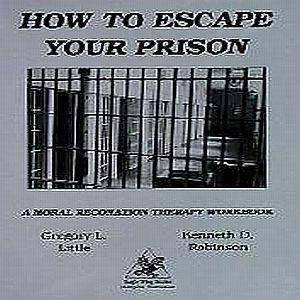Cognitive Classes:
The Facility utilizes cognitive classes and Intensive Outpatient/Aftercare classes to try and assist the offender in changing his criminoginic thought processes and to help make them productive citizens. Please see below for the classes that we utilize.
33rd & 424th Judicial Districts
Intermediate Sanction Facility
Urinalysis Testing:
Residents in the employment component will be administered a urinalisys test every other week during an office visit.
Community Service:
Residents will perform Community Service as ordered by their sending county and facility staff.
Texas Certificate of High School Equivalency:
Residents that do not have a high school diploma or a GED Certificate, are required to attend adult education classes. When the teacher recommends that they are ready to take the Certificate of High School Equivalency test, the resident is scheduled for testing, at the discretion of the Test Proctor. The Intermediate Sanction Facility has an onsite Texas Certificate of High School Testing program through Pearsonvue strictly for the Residents sanctioned to the Facility.
Drug Offender Education Program:
Education Resource provides state approved Drug Offender classes certified by Texas Department of State Health Services. This class is for individuals who have been charged with a misdemeanor or felony drug offense. This class will satisfy the requirement for education because of a suspended driver's license. The standardized program is 15 hours in length taught in three-hour segments. It is designed to educate participants on drug abuse. Participants will develop a personal action plan so that they can avoid future drug use and the resulting consequences. Additional fees are involved with this course as it is presented by an outside source.
Anger Management:
Comprehensive 8 group session program supplemented with one-to-one sessions with counselor. Complete program has a variety of methods employed. Used in all levels of criminal justice.
Moral Reconation Therapy:
MRT is a systematic, cognitive-behavorial, step-by-step treatment strategy designed to enhance self-image, promote growth of a positive, productive identity, and facilitate the development of higher stages of moral reasoning. Consistent research outcomes from a host MRT implementations shows that MRT participants have significantly lower levels of rearrests and reincarcerations.
Substance Abuse/Aftercare:
The Substance Abuse course is facilitated by a Texas Licensed Chemical Dependency Counselor (LCDC). The residents can earn twenty-four hours or more in Substance Abuse Education. The curriculum is based up an evidence based and cognitive behavioral curriculum.
The Aftercare classes are continued throughout the entirety of a residents program. The resident will have the opportunity to earn at least ten hours or more in Aftercare Education. Placement in the programs is through professional assessment, referral, and/or voluntary enrollment. The goal of the courses are to introduce thought processes which increase the opportunity for new behaviors to occur that will support a lifestyle of sobriety.
HIV/AIDS:
Each resident is required to receive an hour long class on HIV/AIDS prevention. This class is facilitated by a nurse with the Department of State Health Services.
Employment Class:
Each resident is required to attend a 9 hour employment preparation class. This class covers job ethics, sexual harassment, pro-social behavior, resume preparation and professional presentation for the work place.

